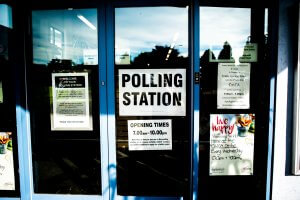United States Supreme Court Affirms Texas Voter Identification-Law
March 2nd, 2017

Voting laws require photo ID to vote are often viewed as an intentional attempt to prevent minorities from voting.
Recently, the Supreme Court declined to review a lower court’s ruling that a Texas voter identification law discriminates against minorities. The Supreme Court’s Chief Justice Roberts noted that there is still additional work for lower courts to do reviewing these laws. The lower court case in question concerns a decision by the United States Court of the Appeals for the Fifth Circuit which ruled that a large number of minorities lacked the specific identification required to vote in the most recent presidential election. Eligible forms of voting identification include driver’s licenses, military identification, passports, or weapon permits. All individuals who are interested in following the Supreme Court and the issue of voter’s rights should understand the various issue at play in this case. The lower court must now consider whether legislature in the state of Texas intentionally targeted minorities when the court passed a law in 2011.
Voting Rights Act of 1965
Signed into law in 1965, the Voting Rights Act of 1965 is a federal law that prohibits racial discrimination in voting. The law is designed to enforce voting rights that are guaranteed by the Fourteenth and Fifteenth Amendments to the United States. There are several important sections to the Voting Rights Act of 1965:
- Section Two: This section states that the right to vote cannot be denied on the basis of race or color. In accordance with this section, laws that have any type of discriminatory effect are unlawful regardless of whether the law in question was enacted or maintained for a discriminatory reason.
- Section Three: This section upholds the Fifteenth Amendment, which prohibits federal and state governments from denying citizens the right to vote on the basis of race or color.
- Section Four: This section holds that citizens cannot be denied the right to vote for failure to comply with literacy tests. These literacy tests were initially used to prevent minorities from voting.
- Section Five: This section freezes election procedures in states until the new procedures have been adequately reviewed by the United States Attorney General or as a result of a lawsuit filed in the United States District Court for the District of Columbia.
Other Supreme Court Rulings
In 2008, the United States Supreme Court approved an Indiana law that requires photo identification for voters, which caused a serious of similar laws to be enacted in other states. Many individuals have argued, however, that new voter identification laws in other states are more restrictive in nature than laws in the state of Indiana and deliberately require identification that is easier for white voters to obtain than minorities.
The Goal of the Universal Life Church
If the Texas case is heard again by the Supreme Court, by that point in time the Supreme Court is likely to have a new majority of conservative justices. The Universal Life Church’s blog aims to explain United States Supreme Court rulings including issues concerning voter’s rights.
(image courtesy of Elliott Stallion)


